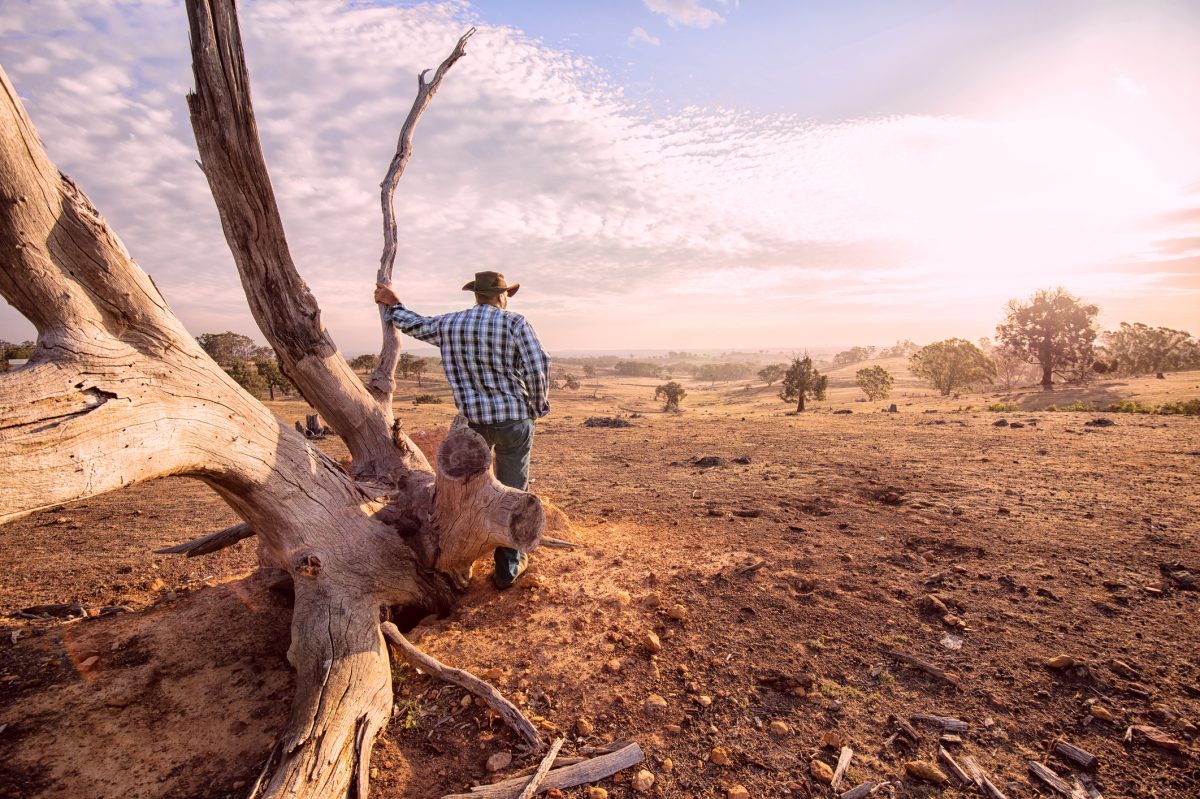
More than 70 per cent of the Riverina is drought-affected, raising concerns, as a recent study highlights how women face more sexual violence in periods of extreme drought. Photo: VMJones.
WARNING: This article discusses mental health, suicide and sexual and domestic violence.
Riverina activist and former Greens candidate Phoenix Valxori says government needs to get real on the threat posed by climate change, as new research highlights the negative impact persistent hot dry conditions can have on behaviour and families.
A recent Curtin University study has found that sexual violence against girls and young women increases during periods of extreme drought. This follows a report by Doctors for the Environment Australia (DEA), which says climate-driven mental health and behavioural disorders are also projected to increase by more than 10 per cent in the 2030s, and between 28 to 49 per cent by the time we reach the 2050s.
With more than 70 per cent of the Riverina affected by drought, Phoenix expressed concern over the “the way that our government has been going”.
“With [the government] continuing to fund coal and gas projects and basically giving up on doing anything climate action related,” they said.
“We can’t keep giving tax breaks to the companies most responsible for climate change and expect anything to change.”
The Curtin University study published in PLOS Global Public Health journal, looked at data from more than 35,000 adolescent girls and young women (13- to 24-years-old) in 14 low- and middle-income countries.
While the study looks at data overseas, Doctors for the Environment Australia (DEA) mental health special interest group chair Cybele Dey said the study is still relevant given how “drought-prone” Australia is.

Pheonix Valxori says we need to invest more in green energy. Photo: Supplied.
“Drought is one of the extreme weather events that’s known to increase mental health risk among children and young people,” she said.
“It’s associated with mental health harms in adults as well, including increases in suicide deaths.
“During water insecurity, girls and women have to go and fetch water and having to do that in places where it’s unsafe.”
The DEA report highlighted more Australians have been suffering from climate-related mental health issues in the past three and a half years, with more people reporting suicidal thoughts and behaviours, physical and sexual assaults, domestic violence and poorer learning for children in hot weather and heat waves.
“You could have an even higher risk if you’ve got a combination of an extreme drought and a period of hotter weather, because we know that increases sexual violence against women and girls,” Dr Dey said.
“We know what’s driving this extreme weather. We know what’s making it worse.
“We need to rapidly transition off fossil fuels to renewable solar and wind, and we need to make sure that any project that’s going to take large volumes of water like gas fracking or artificial intelligence is properly assessed before any approval is given.
“[Data centres] that have lots of computers to run artificial intelligence, so generative technology, they use massive amount of both energy and water.”
Phoenix said the threat to farming families in the Riverina meant we needed to take these issues seriously.
“A drought affects [farmers] horrifically. It makes them stress about their income, their finances, their work.
“We need to actually invest in green projects, you know, like solar and wind farms. Investing in hydropower could also be a good idea for a coastal nation.
“As much as I personally am against it, I think nuclear isn’t a horrible option, but the problem with that is it’s going to take too long.
“I think the best way to go about it is we need to invest in those and we need to invest in our climate scientists to give us Australia-based ways of fixing it.”
The PLOS Pathogens journal study was a collaboration between Curtin University, World Health Organisation, Healthy Environments and Lives National Research Network, United Nations Joint Programme on HIV/AIDS, University of Cape Town, Loyola University Chicago, The Field Museum of Natural History, Padjadjaran University, Tulane University, Telethon Kids Institute, Harvard Medical School, Ecole des Hautes Etudes en Sante Publique, ARC Centre of Excellence for the Elimination of Violence Against Women and NHMRC CRE.







